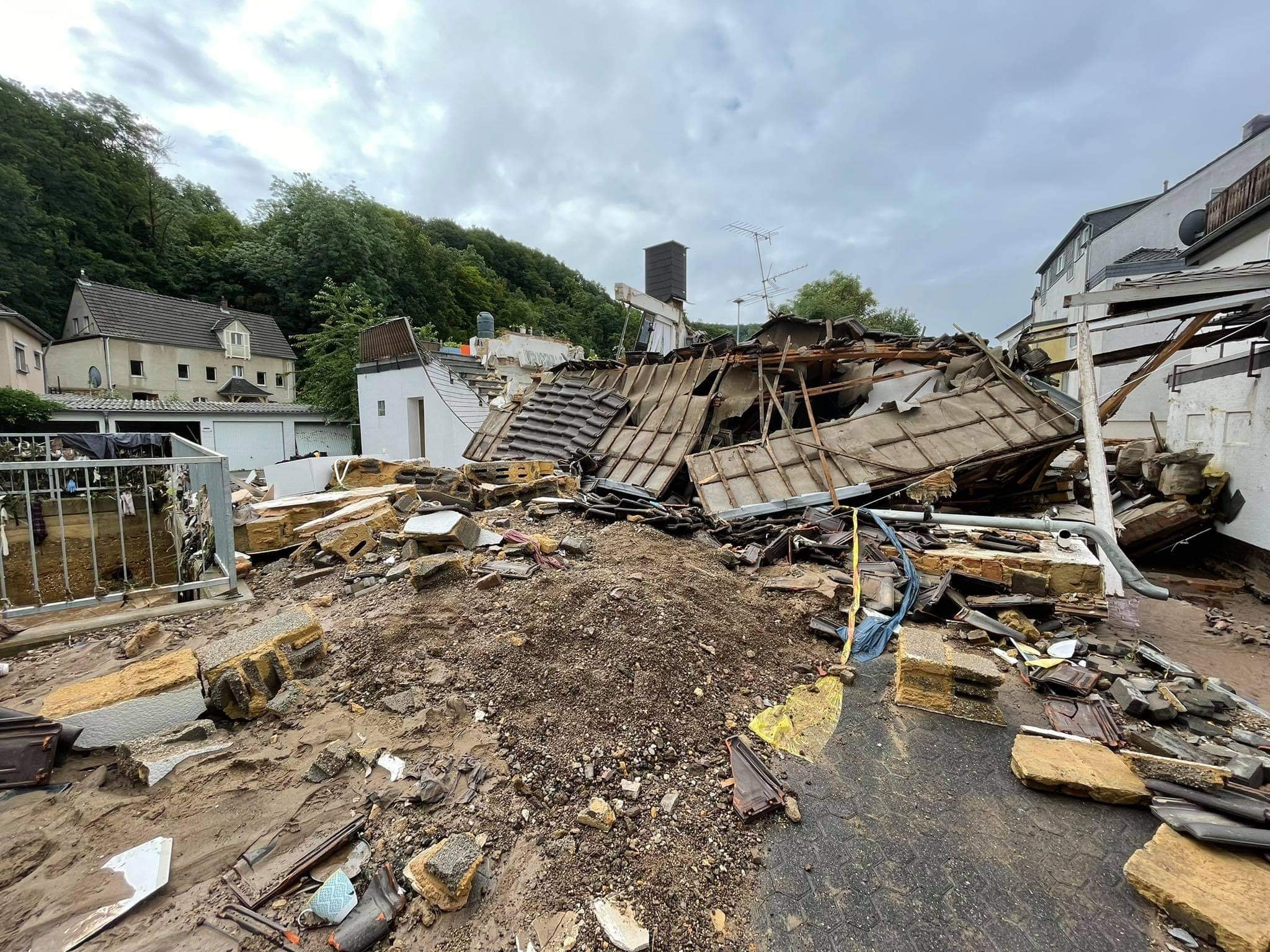Prof. Pinto summoned as expert on Ahr/Erft flood event in July 2021
In the context of the parliamentary inquiry regarding the flood disaster at the rivers Ahr and Erft in July 2021, the ninth session of the investigation committee of the NRW state parliament took place on January 14, 2022, to which Prof. Dr. Joaquim G. Pinto (IMK-TRO) was summoned as an expert witness on this day.
During over two hours of questioning, the main focus laid on the predictability of the enormous rainfall amounts that triggered the flood catastrophe [1]. The extreme rainfall amounts of between 100 and 150 mm/day caused severe flooding in western Germany as well as in neighboring parts of Belgium, Luxembourg and the Netherlands on July 13 and 14, 2021, resulting in more than 180 fatalities and property damage of well over 10 billion euros in Germany alone. New record discharges and water levels were reached during the event e.g., on the Ahr River [2]. Prof. Dr. J. Pinto reported “Enormous rainfall amounts of that magnitude (up to a quarter of the mean annual precipitation) had already been forecast for western Germany by the German Weather Service (DWD) forecast models on July 12th, even though the regions / river basins at risk could not be precisely delimited at that time” [3]. "In the early afternoon of July 13th, the focus of heavy precipitation could be narrowed down to the border area between North Rhine-Westphalia and Rhineland-Palatinate." However, a precise prediction of which valleys will be affected in an area like the Eifel is only possible three to six hours before the event. "It is and remains a political decision whether and when to warn and evacuate the population given the local uncertainty of the forecast" said Pinto.
With his research group at IMK-TRO, Prof. Dr. J. Pinto has studied various meteorological extreme events including extreme rainfall as well as the influence of climate change on such events. Prof. Dr. J. Pinto is currently researching such questions within the framework of the joint project ClimXtreme [5], which is funded by the German Federal Ministry of Education and Research. Within the framework of the ClimXtreme project, a statement was issued regarding the current event [6]. The event is an excellent example for central questions of the project, which are (i), to what extent has climate change already led to more extreme weather events and (ii) whether future climate change will alter the characteristics of extreme weather events (so-called attribution research [6]).
Several working groups at IMK-TRO [7] are involved in various research projects on the targeted observations, predictability and impact of extreme events as well as the question how climate change affects such events. Such research results contribute to a better understanding of the physical processes leading to extreme events and provide new insights into characteristics, variability and change of extreme events under future climate conditions.
[2] https://www.cedim.kit.edu/2926.php
[3] https://www1.wdr.de/nachrichten/landespolitik/untersuchungsausschuss-flut-landesumweltamt-100.html
[6] https://climxtreme.net/index.php/en/component/content/article/33-news/42-lorem-ipsum?Itemid=486
[7] https://www.imk-tro.kit.edu/
Patrick Ludwig and Hendrik Feldmann, AG “Regional Climate and Weather Hazards”

